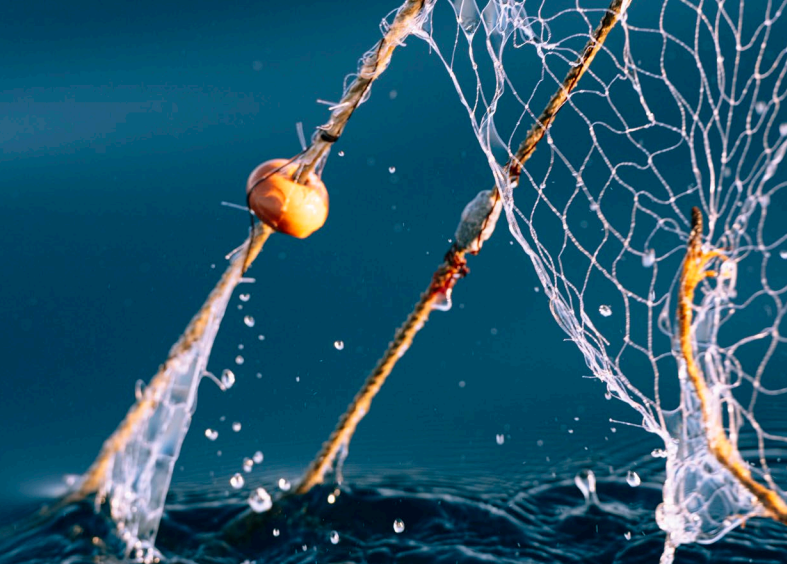In this article, the author underscores the ecological and social impacts of Norwegian intensive salmon farming, including the impact on food security in West Africa. The author remarks that while on the one hand, the European Union promotes fish for human consumption in Africa, on the other, the EU also opens wide its market gates for Norwegian farmed salmon, which is fed West African fish.
West Africa: The EU should promote human consumption over the production of fishmeal and fish oil
JOINT LETTER: 11 African artisanal fisheries organisations and development NGOs send a letter to Commissioners Virginius Sinkevicius and Jutta Urpilainen asking them to use the crucial voice of the EU through Sustainable Fisheries Partnership Agreements and the EU-Africa partnership to address the impending food crisis in the West African region linked to the fishmeal and fishoil production.
Fisheries management in West Africa: the example of sardinella
West Africa: PESCAO should be more effective and attentive to artisanal fisheries
The PESCAO programme for the improvement of fisheries governance in West Africa, financed by the EU from the 11th EDF Regional funds, started in June 2017 and will end in June 2024. After nearly 4 years, an evaluation is underway to assess the results obtained and to see how to improve its implementation, in a context where the countries of the ECOWAS region are focusing on the development of a blue economy strategy.
More aquaculture to feed the world? Not at the expense of African fishing communities
Nowadays, aquaculture provides more people with food than capture fisheries, and the tendency is growing. The accompanying demand for fishmeal and fishoil, driven mainly by China, is increasingly being covered by West African fishing. However, putting the blame for the threat to fish stocks in the region solely on China’s appetite for seafood falls a little short.
"The rich man's fish feeds on the poor man's sardinella"*
In this article, the author extracts from the recent report ‘Feeding a monster: How European aquaculture and animal feed industries are stealing food from West African communities’ the main findings related to the European Union and its Members States, and looks at how some of the recommendations may be implemented in the EU.
African artisanal fisheries at the forefront of the fight against predatory and opaque industrial fishing companies
International Ocean Governance: more can be done to promote socially and environmentally sustainable fisheries
Improving scientific observer coverage in mixed Fisheries Agreements in West Africa
BirdLife Europe and Central Asia, CFFA and WWF release a joint paper with recommendations to harmonize the conditions for the embarkment of scientific observers on board EU vessels and ask that data collection include more specifications on the biological information required, including information on bycatch species.
World Fisheries Day: How the EU can support sustainable African artisanal fisheries
In this declaration on the occasion of World Fisheries Day, CFFA calls on the European Union to integrate the FAO Guidelines for Securing Sustainable Small-scale fisheries into all its policies that have an impact on this sector, particularly in the Blue Economy and Farm to Fork strategies and in its external action.
How large is the Chinese Distant Water Fishing fleet?
The latest ODI report presents the scale of the Chinese flagged, owned and/or operated DWF fleet and highlights the gaps and challenges in China’s governance capacity, but the methodology and the figures need to be taken with a pinch of salt. Using specific examples, CFFA reviews the key findings and implications for the West Africa region.
10 priorities for the future of Sustainable Fisheries Partnership Agreements
CFFA and six other European and African organisations and their networks publish a joint paper with recommendations to improve the sustainability of EU-African fishing arrangements, including transparency, compliance with European obligations, increased scientific knowledge and the rethinking of the financial support objectives.
Future common fisheries policy in Africa: outlook from CAOPA
CAOPA answered a questionnaire on an assessment of the fishery sector in the ECOWAS region, proposed by AU regarding the process of a definition of a common fisheries policy, the subject of which being “Contribution of the African confederation of artisanal fishing organizations”, on the 24th of August 2012.
The questionnaire identifies the main strategic issues for capture fisheries and aquaculture in the region and the main challenges and opportunities for these sectors, such as maintaining coastal communities livelihoods, food security and concerted management of the coastal area/fisheries co-management.
The lack of transparency in policies is a key issue, since it threatens the exploitation of resources. Indeed, “transparency in this regard must become the rule and must be the basis for an informed participation of the stakeholders, in particular artisanal fishing communities. Greater transparency is also an important tool in the fight against IUU fishing, which is thriving when the opacity and corruption reign”.
Besides, an analysis on the current human and institutional capacities in the region is proposed. The strengths and weaknesses, challenges and opportunities for the sectors, namely marine fisheries, inland fisheries and aquaculture in the region are highlighted: “Strategies and policies should also be developed to enable artisanal fisheries, which currently target mainly coastal resources, often overfished, to develop offshore artisanal fisheries, for example for tuna species, so that our countries can derive more benefits from offshore fisheries”.
An examination of the level of the existing cooperation between the regional economic communities and regional fisheries organizations in the region is provided and some propositions to strengthen cooperation and collaboration are made.
Moreover, “Artisanal fisheries professionals must be recognized as primary stakeholder by decision makers”. The role of civil society and media is also stressed to be important in the management process.
The fact that there are weaknesses in the implementation of the Code of conduct of the FAO for responsible fishing and other relevant documents in the region or the country is also emphasized.
And finally, some cross border issues in the management of fisheries and the environment in the region are indicated.













